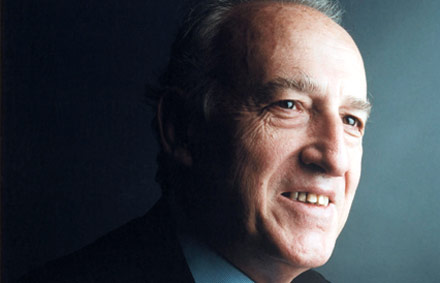 Maurizio Pollini is, to these ears and tastes, a God – and there are perhaps no living pianists that equal him in my estimation. His recital at the Kennedy Center last year was not only the high-point of 2004/2005, it will rank among the finest I have ever heard. Not surprising, then, that expectations should have been high for the crowning piano recital of the Washington Performing Arts Society’s star-studded season. Alas, expectations have the mildly paradoxical downside that by not exceeding them, one can fail to meet them.
Maurizio Pollini is, to these ears and tastes, a God – and there are perhaps no living pianists that equal him in my estimation. His recital at the Kennedy Center last year was not only the high-point of 2004/2005, it will rank among the finest I have ever heard. Not surprising, then, that expectations should have been high for the crowning piano recital of the Washington Performing Arts Society’s star-studded season. Alas, expectations have the mildly paradoxical downside that by not exceeding them, one can fail to meet them.Assuredly, a Pollini does not “fail” in any conventional way: he is, after all, the embodiment of brilliant perfection. If he can’t charm you, he will dazzle and impress at the very least. Wednesday, in his program of Chopin and Liszt, he was – Leonard Cohen goes through my mind – “somewhere in between, I guess.” The Chopin nocturnes, recently recorded for Deutsche Grammophon (review coming soon), are already not works that allow for the qualities I so admire in his Chopin; the choices of the op. 55 and op. 48 pairs even less so than op. 9 or op. 15 (where I find his recorded versions most appealing). Less susceptible to his strength of bringing Chopin’s depth to the fore, these surface-bound pieces came across as admirable, nothing more. Still, even at the least involving, the marvelous soft notes – never shy-sounding – demanded respect. Subtle relentlessness and a well-shaped, modest build-up gave Nocturne op. 55, no. 2, in E-flat Major its air of distinguished refinement. The slow beginning of op. 48, no. 1, and its return to the main theme were more satisfying; no. 2 from that set was produced in a fine, stately manner.
Tim Page, Maurizio Pollini, Giving His All (Washington Post, May 19) Charles T. Downey, Maurizio Pollini at Strathmore (DCist, May 18) |
The second half of the program started with deliciously unforgiving Liszt. After all, it is not for Pollini to cater to an audience’s expectations and play a recital of recognizable tunes or ‘greatest hits’. Perhaps he won new admirers for Liszt’s stern, late works with the impeccable clarity and strength that he brought to them. If not, it surely fascinated those who already find merit in Nuages Gris, Unstern, La Lugubre Gondola I and R.W. – Venezia. The shreds of steely gray clouds that move together and apart in expressionist, introverted style are an acquired taste, for sure, but the somber insistence with which Pollini extracted them -- threateningly assembled them -- from his customized Steinway, might have captured the audience eventually. The way Pollini grows crescendi under his hands was awe-inspiring here as in the following B minor sonata, and Liszt’s cubist tonality (as opposed to the molten kind of Debussy or Wagner’s interwoven blurring of tonal boundaries) was given its very own appeal.
F. Chopin, Nocturnes, Maurizio Pollini |
Generous with encores for a frenetic crowd, Pollini pleased with Debussy (La cathédrale engloutie from the first book of the Préludes), and more Chopin: an etude (op. 10, no. 12), a substantial nocturne (op. 27, no. 2), and the 24th prelude, its last low notes, like a bell struck thrice, ringing out the recital.